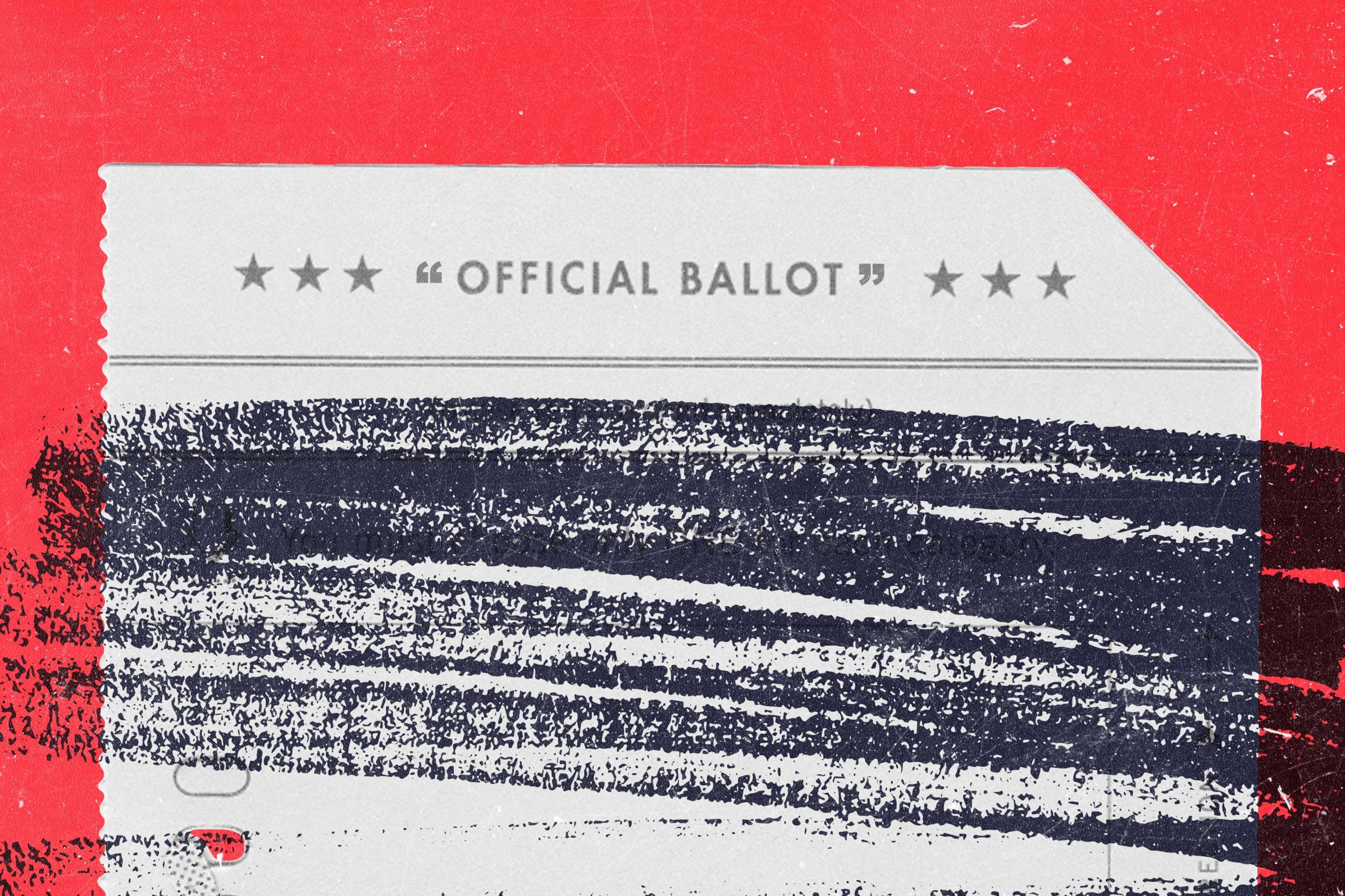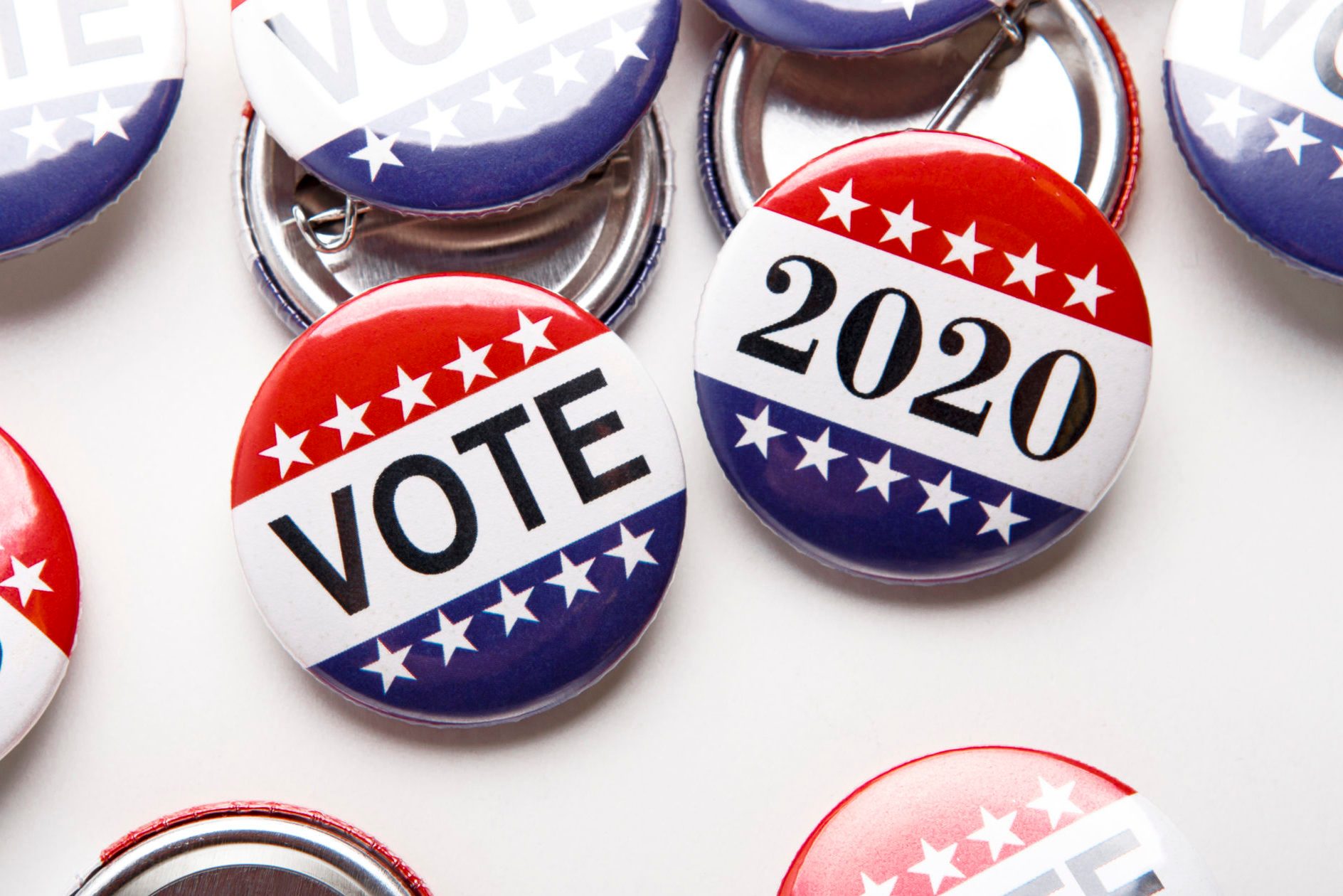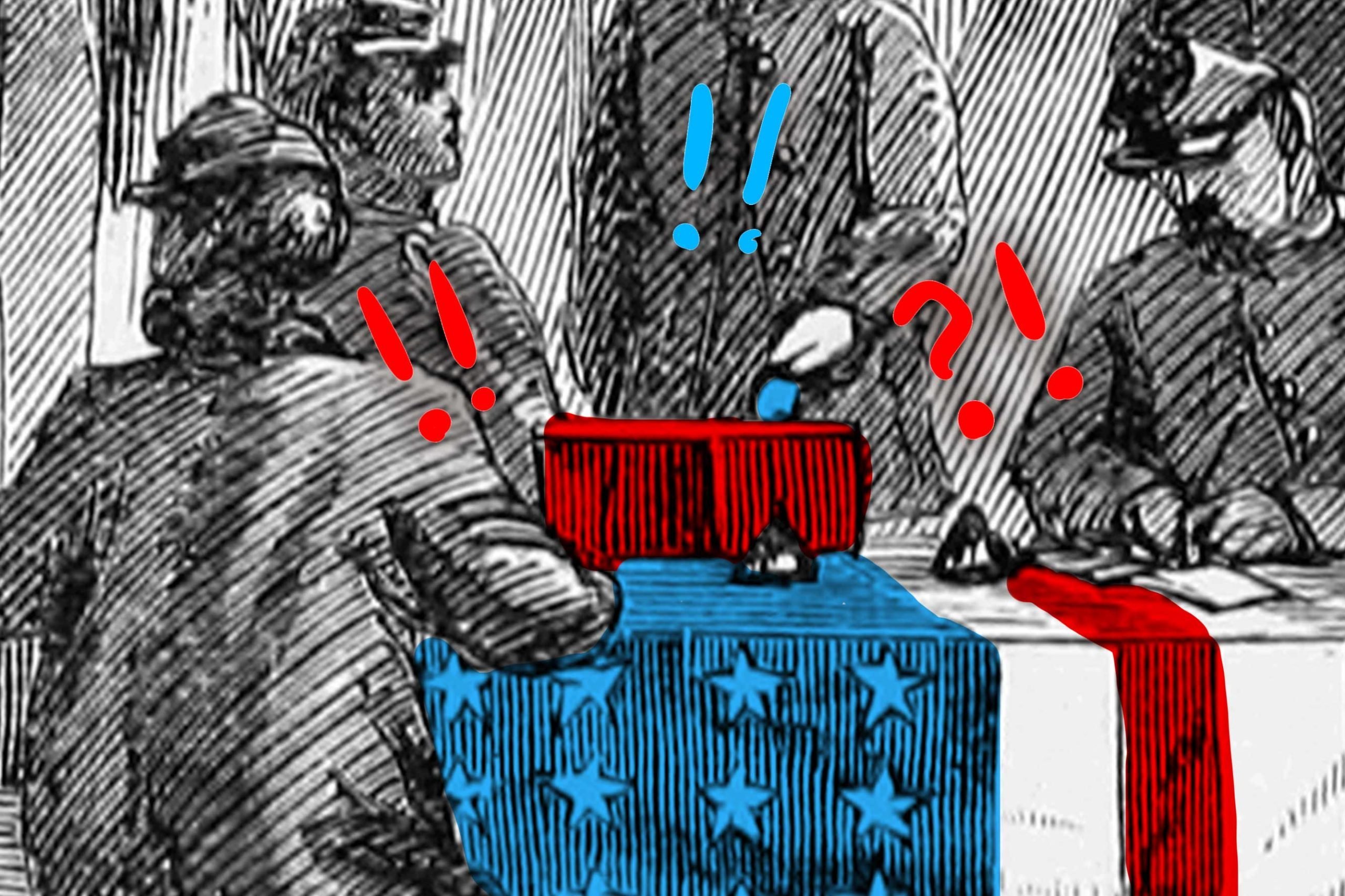The peaceful transfer of power is one of the fundamental tenets of American democracy. When George Washington‘s second term was over, he voluntarily stepped down and John Adams, who had won the election, took office.
“That was not a constitutional requirement at the time,” says Jon Michaels, a professor in the UCLA School of Law, author of Constitutional Coup: Privatization’s Threat to the American Republic, and noted authority on constitutional law, presidential powers, government ethics, and conflicts of interest. In fact, it’s still not. The 20th Amendment stipulates that a president’s term—outlined in the Constitution as a four-year period—ends at noon on January 20 at the end of those four years. But, the Constitution does not spell out how it is to be handled. Rather, it’s a matter of tradition.
When Thomas Jefferson ran a politically heated campaign against John Adams in 1800, the Electoral College was tied and the outcome had to be decided by the House of Representatives. Even so, once the matter was settled, Adams peacefully vacated the office, setting the precedent for the next 220 years.
Challenging the norms
On September 23, 2020, President Donald Trump wouldn’t commit to following the two-centuries’ old custom when asked during a news conference. It wasn’t the first time he suggested as much: In March 2018, he praised China’s move to abolish presidential term limits, joking that the U.S. might “have to give that a shot someday.”
Now that we are less than a month away from the election, such rhetoric is being taken more seriously. Russell Riley, PhD, professor and co-chair of the Presidential Oral History Program at the Miller Center, a nonpartisan affiliate of the University of Virginia that specializes in presidential scholarship, notes that questions of what happens if a president should refuse to leave office involves “an extraordinarily arcane area of presidential politics.”
Presidential protocol
There is a proscribed sequence of events that happens when the incumbent president’s term expires at the dot of noon on January 20. These include:
- The nuclear codes, which allow the president to order a nuclear attack, expire. The military aide who carries the “nuclear football” containing the codes leaves the departing president’s side and joins the president being inaugurated.
- The U.S. military switches its allegiance from the outgoing president to the incoming president. Any military orders issued by the outgoing president would be refused. Any officers who obeyed such orders could be arrested and tried on charges of mutiny and sedition.
- Likewise, the Secret Service moves to protect the new president and abandons the electoral loser, except for a small unit that will protect him and his family for the remainder of their lives, one of the perks presidents get to keep after leaving office.
These actions make it highly unlikely that a president could go rogue and refuse to leave office. Even if he tried, the new president’s acting attorney general could draw up arrest warrants for charges ranging from criminal trespassing to insurrection.
Legal challenges
That doesn’t mean a candidate couldn’t try to steer the election outcome, or delay its determination, through other means.
If the popular vote indicates that a candidate has won the election by a narrow margin, the results could be contested with lawsuits and other maneuvers. Some would say Trump has laid the groundwork for this by challenging the legitimacy of mail-in ballots, which are expected to comprise more than half of this year’s votes. If election night returns show Trump in the lead—a distinct possibility, as surveys show Trump supporters are more likely to vote in person than Biden backers—he may try to claim victory and stop the counting of mail-in ballots.
Meanwhile, Republican and Democratic parties have already launched dozens of lawsuits each, and other groups have filed hundreds more, primarily centering on mail-in ballot technicalities. Many are hopeful attempts to answer questions before the election, but it’s likely many legal questions will remain well into November and beyond. But, you really don’t have to worry about mail-in ballot safety—one mail carrier explains why.
In the event of a slim popular vote margin, a candidate could also try to leverage the Electoral College and its deadlines. Electors must be chosen no later than 41 days after Election Day. On that date, which is December 14 this year, the electors meet to cast their votes—typically for the candidate who won the popular vote in their state. Then, on December 23, each state submits an electoral certificate to Congress, and on January 6 Congress counts the votes.
However, it’s not always so cut-and-dried. If the electors are selected after December 8, the so-called “safe harbor” date, their validity—and their votes— could be challenged. Our electoral system is complicated; for more information, read the answers to 19 political questions you’ve been too embarrassed to ask.
Another consideration: In 17 states, electors are not required to vote for the winner of the popular vote. Candidates could pressure those state legislatures in several of those states—including the hotly contested Pennsylvania, Florida, Michigan, and Wisconsin—to certify electors who would vote in their favor. If governance of those states is split—say, a Republican legislature with a Democratic governor—states could end up submitting conflicting electoral certificates to Congress and muddying the vote.
The Electoral Count Act
If that happens, the Electoral Count Act would be triggered. This legislation was created after the 1876 Rutherford B. Hayes–Samuel J. Tilden contest, when three states submitted conflicting electoral certificates, preventing an Electoral College majority. The ECA states that in such circumstances, the two houses of Congress vote on which slate of electors to approve. With the Senate currently under Republican control and the House of Representatives currently under Democratic control (though that could change by the time Congress is seated on January 3), a stalemate is possible. However, the act is quite vague on how different scenarios should be resolved, and challenges to the law are expected. The issue could even be sent to the Supreme Court. But, Riley takes issue with this approach, especially given the current rush to confirm a new SCOTUS justice before Election Day. “No justice appointed under these circumstances under any prevailing standard of judgment should agree to issue a ruling on this election. Justices recuse themselves when they are parties to issues coming before the court,” Riley says.
The Presidential Succession Act
This legislation, crafted in 1947, outlines what happens when the office of the president is vacant. If no president or vice president can be selected before January 20, when the current president’s term expires, the Speaker of the House becomes acting president until the situation can be resolved.
According to Riley, this nearly happened in 2000 when voting irregularities in Florida caused election results to be contested. Dennis Hastert, then Speaker of the House, told Riley in a later interview, “The CIA would come and start to brief me. I was going to be the temporary president if the decision wasn’t made by some date in January.” Nevertheless, the situation was resolved and no one except the vice president has ever succeeded the president since the act was signed into law.
Democracy prevails
Riley remains optimistic that none of this will come to pass this year, thanks to the much-maligned Electoral College. “One of the virtues of the Electoral College is that it has the effect of exaggerating the popular vote and accentuates the authority of the person who wins,” he explains. As an example, he says a 4 or 5 percent popular vote win can look like an Electoral College rout. “However in instances where there is a question about the outcome of an election, it cabins the contest to a very narrow area.” He predicts that in the vast majority of states, it’s going to be reasonably clear who won in the upcoming election. “The contest is going to come down to two or three ugly situations.”
But, as Riley notes, many Republicans in power, as well as Democrats, are “openly saying there needs to be a calm and reasoned transfer of power…It helps that you’ve got people in both parties who are saying they’re going to pay careful attention to these things and try to broker a peaceful transition.”
The fact that we don’t have explicit rules or tools to enforce the unwritten pact guaranteeing a peaceful transition is a testament to our collective integrity, Michaels says. “If we have to add it now, it will forever mark this moment as the nadir of our republic.”
Sources:
- Jon Michaels, a professor in the UCLA School of Law
- Russell Riley, PhD, professor and co-chair of the Presidential Oral History Program at the Miller Center
- Pew Research Center:”Americans’ expectations about voting in 2020 presidential election are colored by partisan differences”
- Lawrence R. Douglas, a professor in Amerhest College
- The Hill: “Trump on Chinese president abolishing term limits: ‘Maybe we’ll give that a shot someday'”
- CNBC.com: “Trump won’t commit to a peaceful transfer of power if he loses the election”
The post Here’s What Happens If a President Won’t Leave Office appeared first on Reader's Digest.
* This article was originally published here Subscribe for more JOKES



Love your photos and did notice that you are using Instagram. You can buy instagram followers to grow an audience. This place also lets you buy youtube dislikes so you can balance your videos.
ReplyDelete